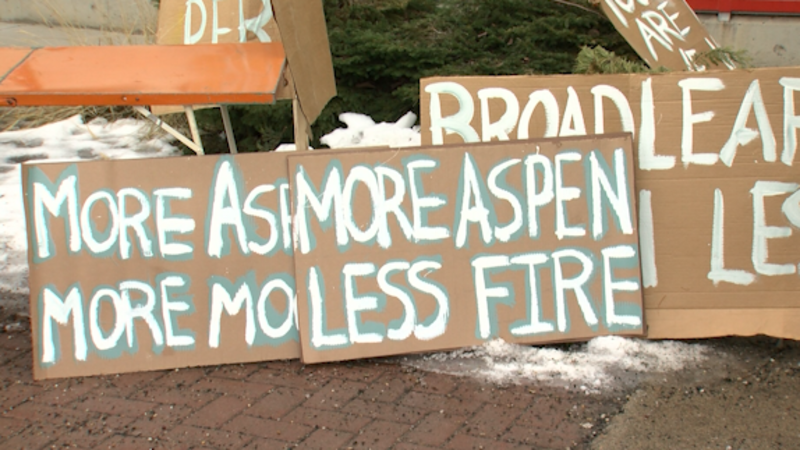
Anti-Glyphosate gathering
PRINCE GEORGE – The Anti-Glyphosate Stop the Spray folks gathered outside the Conference and Civic Centre this morning, where the BC Professional Foresters conference was wrapping up.
“So we’re here trying to meet up with the Forests Minister and the Chief Forester, and we want to have a discussion about the stocking standards and about growing more diverse forests in our in our region,” explains James Steidle, who organized the gathering. “Because if you drive out of town in any direction, within half an hour, you’ll probably be stuck in the middle of a pine plantation. And it wasn’t all pine trees before. We’re losing out on wildlife. A lot of this wildlife, they kind of need your deciduous species, the Aspens, the birches.”
